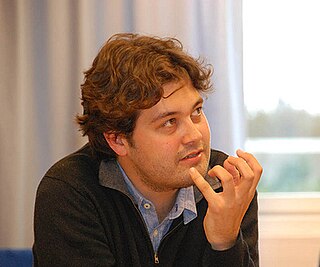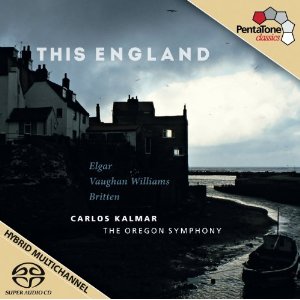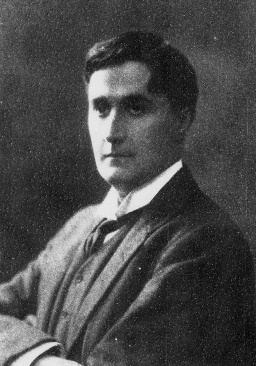Related Research Articles
Serenade to Music is an orchestral concert work completed in 1938 by English composer Ralph Vaughan Williams, written as a tribute to conductor Sir Henry Wood. It features an orchestra and 16 vocal soloists, with lyrics adapted from the discussion about music and the music of the spheres from Act V, Scene I from the play The Merchant of Venice by William Shakespeare. Vaughan Williams later arranged the piece into versions for chorus and orchestra and solo violin and orchestra.
Sinfonia antartica is the Italian title given by Ralph Vaughan Williams to his seventh symphony, first performed in 1953. It drew on incidental music the composer had written for the 1948 film Scott of the Antarctic.
Ralph Vaughan Williams's Symphony No. 3, published as A Pastoral Symphony and not numbered until later, was completed in 1922. Vaughan Williams's initial inspiration to write this symphony came during World War I after hearing a bugler practising and accidentally playing an interval of a seventh instead of an octave; this ultimately led to the trumpet cadenza in the second movement.
The Concerto in F Minor for Bass Tuba and Orchestra by British composer Ralph Vaughan Williams was written in 1954 for Philip Catelinet, principal tubist of the London Symphony Orchestra (LSO), who together gave the premiere on 13 June 1954 with Sir John Barbirolli conducting. The same musicians made the work’s first recording that same year. This concerto was the first concerto written for solo tuba.

Sancta Civitas is an oratorio by Ralph Vaughan Williams. Written between 1923 and 1925, it was his first major work since the Mass in G minor two years previously. Vaughan Williams began working on the piece from a rented furnished house in the village of Danbury, Essex, found for him by his former pupil, Cecil Armstrong Gibbs.
The Concerto in A minor for Oboe and Strings was written by Ralph Vaughan Williams in 1943–44 for the oboist Léon Goossens, to whom the score is dedicated.
Antonín Dvořák's Requiem in B♭ minor, Op. 89, B. 165, is a funeral Mass scored for soloists, choir and orchestra. It was composed in 1890 and performed for the first time on 9 October 1891, in Birmingham, England, with the composer conducting.
The Strathclyde Concertos are a series of ten orchestral works by the English composer Sir Peter Maxwell Davies.
An organ concerto is an orchestral piece of music in which a pipe organ soloist is accompanied by an an orchestra, although some works exist with the name "concerto" which are for organ alone.
Zdeněk Lukáš was a Czech composer. He authored over 330 works.

Lawrence Power is a British violist, born 1977, noted both for solo performances and for chamber music with the Nash Ensemble and Leopold String Trio.
The Suite for Viola and Orchestra by Ralph Vaughan Williams is a work in eight movements for solo viola and orchestra composed in 1933 and 1934. The Suite is dedicated to violist Lionel Tertis, who premiered the work on November 12, 1934 at the Queen's Hall in London under the baton of Malcolm Sargent. A typical performance lasts about 23 minutes.
Six Studies in English Folk Song is a piece of chamber music written by English composer Ralph Vaughan Williams in 1926. It is a collection of six English folk songs set for cello and piano. Each song follows the same format: presentation of the tune in the solo line, followed by a full iteration of the folk song in the piano with an ornamented solo line.

This England is a classical music album by the Oregon Symphony under the artistic direction of Carlos Kalmar, released by Dutch record label PentaTone Classics in November 2012. The album was recorded at the Arlene Schnitzer Concert Hall in Portland, Oregon, at five performances in February and May 2012. It contains works by three English 20th-century composers: Edward Elgar's Cockaigne , Ralph Vaughan Williams' Symphony No. 5, and "Four Sea Interludes" and "Passacaglia" from Benjamin Britten's opera Peter Grimes. The recording was the orchestra's second under Kalmar's leadership, following Music for a Time of War (2011), which also included works by Britten and Vaughan Williams. This England received positive critical reception but failed to chart.
This is a summary of 1925 in music in the United Kingdom.

The Lark Ascending is a short, single-movement work by the English composer Ralph Vaughan Williams, inspired by the 1881 poem of the same name by the English writer George Meredith. It was originally for violin and piano, completed in 1914, but not performed until 1920. The composer reworked it for solo violin and orchestra after the First World War. This version, in which the work is chiefly known, was first performed in 1921. It is subtitled "A Romance", a term that Vaughan Williams favoured for contemplative slow music.

Marius Flothuis, born and died in Amsterdam, was a Dutch composer, musicologist and music critic.
References
- ↑ Vaughan Williams, Ralph, Flos campi orchestral score, Oxford University Press, 1928
- ↑ ibid
- ↑ Kennedy, Michael (1982). A Catalogue of the Works of Ralph Vaughan Williams, Second Ed. Oxford University Press. p. 105. ISBN 9780193154520.
- ↑ ibid, p. 106
- ↑ ibid, p. 106
- ↑ quoted in ibid, p. 107